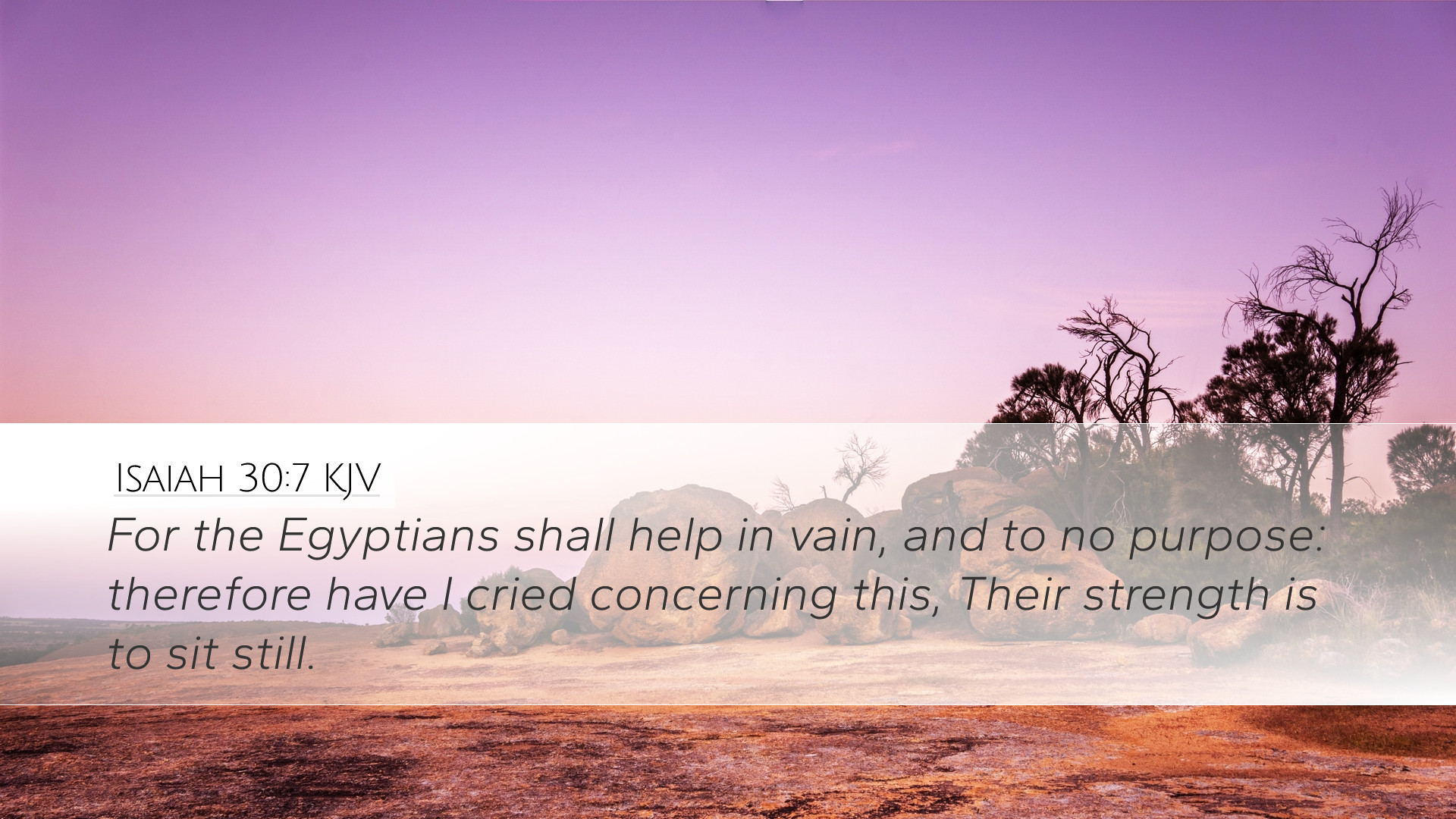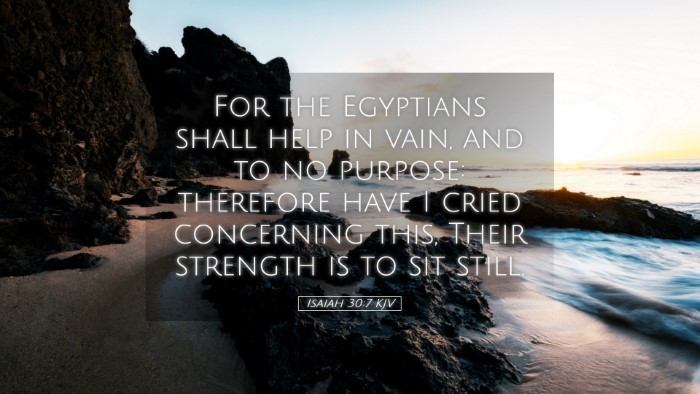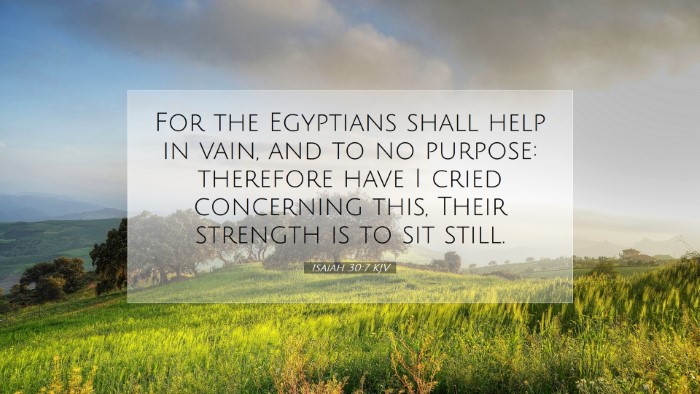Isaiah 30:7 - Commentary and Analysis
Isaiah 30:7 states, "For Egypt's help is worthless and empty; therefore I have called her, 'Rahab who sits still.'" This verse is part of a larger context where God speaks through the prophet Isaiah regarding the reliance of Judah on Egypt for assistance against their enemies. The commentary provides insights into the theological and historical significance of this passage, bringing forth a rich tapestry of understanding.
Contextual Background
The context of Isaiah 30 is crucial for understanding this verse. The southern kingdom of Judah, facing the threat of Assyrian invasion, considered turning to Egypt for military and political aid. However, Isaiah, inspired by God, delivers a message of warning, emphasizing the futility of seeking help from nations, particularly Egypt, which was known for its idolatry and oppression.
The Significance of Egypt
Egypt is often symbolic in the Scriptures, representing worldly reliance and sin. Matthew Henry elaborates on this idea by describing Egypt as a "broken reed” on which the Israelites leaned, emphasizing its inability to provide true help. The beauty of the expression "Rahab who sits still" reflects a state of inactivity and ineffectiveness. Here, the use of 'Rahab' serves to denote both the pride and the eventual fall of Egypt, drawing on a dual meaning present in ancient texts.
Theological Implications
Albert Barnes points out that God's message is one of stern rebuke toward Judah's reliance on external powers rather than upon Him. This reliance is termed 'worthless' and 'empty,' underscoring a critical theme in the Scriptures, that true help comes from God alone. The name 'Rahab,' often associated with chaos and pride, highlights that Egypt’s strength is an illusion and its help ultimately leads to disappointment.
Insights from Adam Clarke
Adam Clarke provides further depth by referencing the historical alliances formed during times of conflict, which often led to the compromise of faith and integrity. Clarke's insight stresses that the allure of Egypt was not merely political but also spiritual, as they represented a comfort in tangible, worldly solutions over the spiritual assurance provided by Yahweh.
Lessons for Modern Readers
This verse provides several lessons that resonate with pastors, students, and scholars:
- The Folly of Reliance on Worldly Powers: Just as Judah was warned against seeking help from Egypt, present-day believers must be cautious of placing their trust in worldly systems and ideologies.
- God's Sovereignty: The passage highlights God’s sovereignty, reminding readers that He alone is the source of true strength and assistance in any crisis.
- The Nature of True Help: The commentary emphasizes that genuine support comes from a relationship with God rather than alliances with worldly entities.
Conclusion
Isaiah 30:7 serves as a profound reminder of the futility of seeking assistance from sources that lack substance and truth. The insights from public domain commentaries illuminate the rich theological implications of this verse, encouraging a deeper reliance on God alone for strength and deliverance. As believers confront the challenges of life, this scripture urges them to look to the Lord as their primary source of hope and help.


